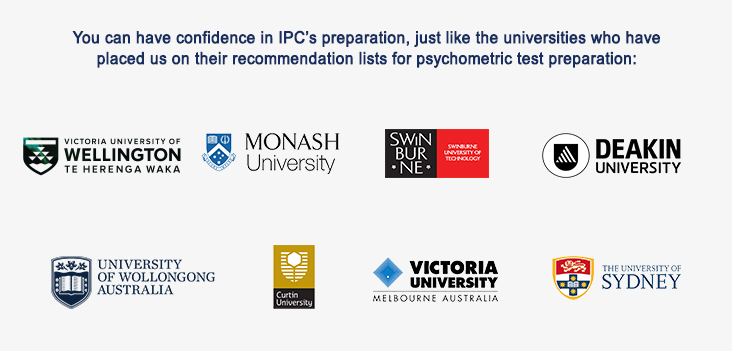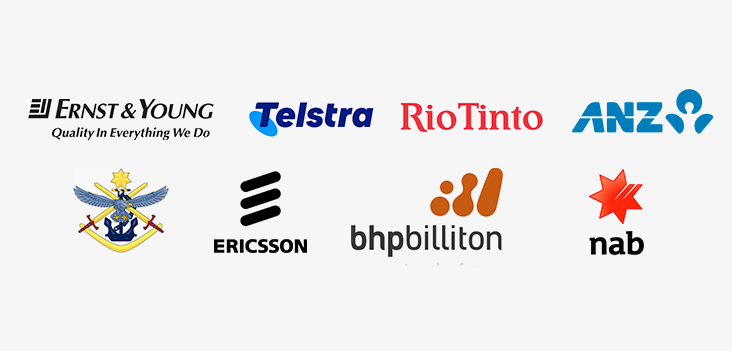Job Interview skills tips
Interviews are about presenting yourself in a positive and confident manner and our interview skills and tips will help you. Many candidates are often worried that by "overselling" themselves they may appear arrogant and, as a result, they opt for mainstream answers which can sometimes appear fairly vague.
In our courses there are a number of interview techniques that you can apply to ensure that you do yourself justice and improve your interview skills to a level that will make you one of the strongest candidates. For some free interview skills and tips continue reading and we'll tell you 10 crucially important interview skills and tips:
Interview Tip 1 - Know yourself
Many candidates fail simply because they have not spent any time thinking carefully about what they can offer. Take time to think about your experience, how it makes you an ideal candidate for that post and how you can demonstrate this through concrete examples. Only practise and go through mock interviews once you have gathered your thoughts.
Interview Tip 2 - Research the job and your future employers
Your interviewers want to know if you are a good fit to their company. This is easier to demonstrate if you know what they are looking for and how working for them fits into your career plan. By demonstrating knowledge of the company you will come across as a motivated individual. Use all the sources available to you, including any information sent to you by the company with the application, the company's and other websites, their Annual Report & Accounts (which can usually be downloaded from their website - if not, ask them), etc.
Interview Tip 3 - Keep your answers between 1.5 and 2 minutes
Lengthy answers do not make the points clearly enough, but short answers tend to make too few points. As a general rule, ensure that your answers fit within the 1.5 - 2 minutes timeframe, with a bit more maybe for answers to some of the more open interview questions (such as "tell me about yourself"), but keep it under 3 minutes, interviewers can always ask further questions.
Interview Tip 4 - Structure your answers in 3 or 4 points maximum
Make a strong impact with your interview answers ensuring that the message is coming out loud and clear. Using a 3- or 4-point structure helps your interviewers identify the important themes in your answer and means they won't have to work hard to get the picture. The human brain cannot take more than 3 or 4 things at a time. If you have more than 3 or 4 things to say then you should organise the information differently. Don't drown your interviewers with information.
Interview Tip 5 - Clearly identify each point in your answers
Waffling around a topic leaves the interviewer unclear about what you are trying to say. Once you have a clear structure for your answer, ensure that each section is identified by the message that you are trying to convey. For example, if you are being asked a question such as "What are your main strengths?" you could structure your answer as follows:
- One of my key strengths is to quickly analyse situations and understand the broader aspects and implications.
- I am also very friendly and supportive when engaging with co-workers and clients
- Another one of my strengths is my ability to execute tasks in a structured and systematic manner
Interview Tip 6 - Backup each point with your personal experience
Using your experience to back up the points you are making changes the answer from a series of unsubstantiated claims to one with validity. If you adopt a 3-point structure over 1.5 to 2 minutes, this gives you on average 30 or 40 seconds per point. So keep your examples succinct and to-the-point.
Interview Tip 7 - Avoid announcing a structure upfront unless you are absolutely confident
Announcing the structure of your answer upfront can be dangerous which needs to be balanced against the gain of appearing confident. For example: "There are several factors that demonstrate my relevant experience: my in-depth experience of sales techniques, my ability to manage customers and my negotiation skills".
- It forces you to have a ready-made structure as soon as the interviewer has finished asking the question. This could be awkward if you haven’t prepared the answer previously
- You lose flexibility. You may find that you want to introduce something that you had not originally thought about or, that you want to drop something that does not sound so good after all. If you have announced the structure of your answer upfront, you will not be able to change it half-way through.
Interview Tip 8 - Use active verbs and power words to describe yourself
If you want to make a strong impact don’t use expressions such as "I was involved in" too often as they reflect a situation in which you played a role rather than the role itself. Use words and verbs such as: "played a key role in", "managed", "elaborated/built on", "was instrumental in", "achieved", "proposed", "derived", "proficient/competent in", "confident in", etc.
Interview Tip 9 - Use the STAR approach when using examples in an interview answer
The STAR (Situation, Task, Action & Result) framework is a well-known interview technique to answer questions asking for an example. It is a method which all HR professionals will have trained in and learnt to recognise. Practice it thoroughly so that you can use it naturally at your interview. You can read more details about the STAR approach in our Job Interview Course.
Interview Tip 10 - Behaviour and body language
Your body language will give your prospective employers a lot of information about you. They probably will not be looking at it specifically (unless it is so bad that they can't miss it!) but they will be subconsciously affected by it throughout the interview.
Learn more about what to do and not to do in our Job Interview Course.









